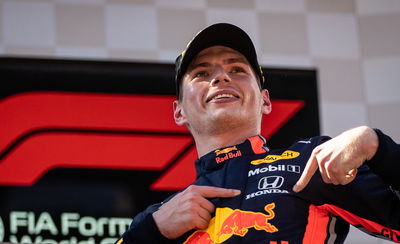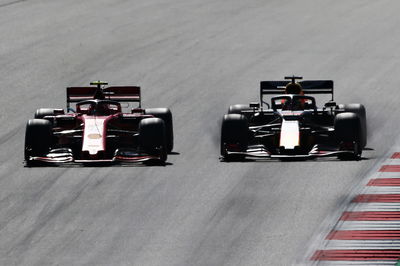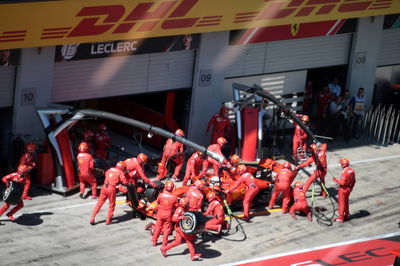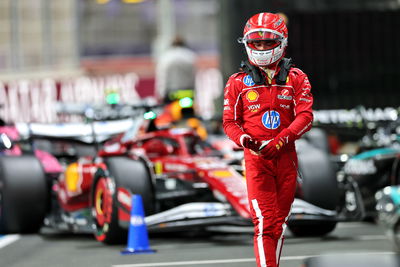Austrian GP conclusions: Max thriller silences F1 critics
The 2019 Austrian Grand Prix highlighted exactly why we should avoid being so quick to judge Formula 1 races.
After a relatively dull French Grand Prix, a sensational performance from Max Verstappen sparked the 2019 F1 season into life with a drive for the ages as he claimed Red Bull’s first win of the year and ended Mercedes’ victorious run in Spielberg.
Here are some of the main talking points from the Austrian Grand Prix…

The 2019 Austrian Grand Prix highlighted exactly why we should avoid being so quick to judge Formula 1 races.
After a relatively dull French Grand Prix, a sensational performance from Max Verstappen sparked the 2019 F1 season into life with a drive for the ages as he claimed Red Bull’s first win of the year and ended Mercedes’ victorious run in Spielberg.
Here are some of the main talking points from the Austrian Grand Prix…
New generation spice up show
The Austrian Grand Prix provided a classic example of why we should not jump to conclusions too soon.
Granted, F1 is not in the perfect spot right now, and by no means does one good race instantly eradicate all of its problems, but in Spielberg we were served a timely reminder that perhaps all is not as bad as it appeared following a relatively dull race at Paul Ricard.
Much like football has its fair share of boring 0-0 draws, F1 might well fall short at times with processional, uneventful races, but Spielberg delivered the best race of 2019 yet - and it was badly needed. We had already been treated to an unpredictable qualifying session on Saturday, and that was followed up by an epic 71-lap rollercoaster ride.
Speaking after the race, Hamilton concluded: “I think ultimately what it shows is that you can’t just look at one weekend and complain, because that is what seems to happen.
“One weekend doesn’t go well and it’s like ‘oh the racing is boring’. Then you have a race like this and it’s like ‘oh, the racing is exciting’. Then the next race ‘it’s boring’ - just make up your minds and chill.”
Hamilton, who finished off the podium for the first time this season in a distant fifth, made a valid point.

For Verstappen, all hope seemed lost just seconds into the race as his Red Bull kicked into anti-stall, resulting in the Dutchman losing seven places and dropping as low as ninth on the opening lap.
Undeterred, and in demonstrating the new breed of driver he has now developed into since his mistake-ridden start to 2018, Verstappen fought back and swiftly recovered through the order.
Having jumped Hamilton when the Mercedes driver was forced to change his damaged front wing, Verstappen made the most of fresher tyres - after running long in the first stint - to charge past Sebastian Vettel and Valtteri Bottas, before hunting down Charles Leclerc, who had controlled the majority of the race.
After a number of laps lining up the Ferrari driver, Verstappen made his decisive move with three tours remaining in what proved the flashpoint of the race. He and Leclerc banged wheels at Turn 3 as Verstappen barged his way through, causing Leclerc to run wide in the process.
Much to the delight of a raucous crowd largely made up of the ‘orange army' contingent, Verstappen went on to take Red Bull’s first victory since making the switch to join forces with Honda, and the Japanese engine manufacturer’s first win since 2006. It marked Verstappen’s sixth career grand prix victory and it was surely his greatest to date.
Despite a three-hour wait for an official race result following an investigation into the incident, the F1’s youngest ever front-row starters provided an excellent battle for the lead that has left the paddock salivating at the prospect of more duels between the sport’s emerging stars in the future.
The crescendo of roars from the jubilant Dutch crowd’s celebrations has certainly deafened F1’s critics for now…












